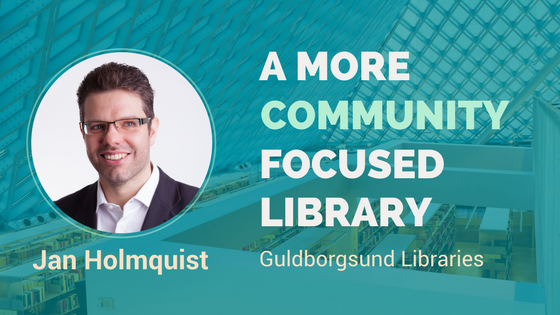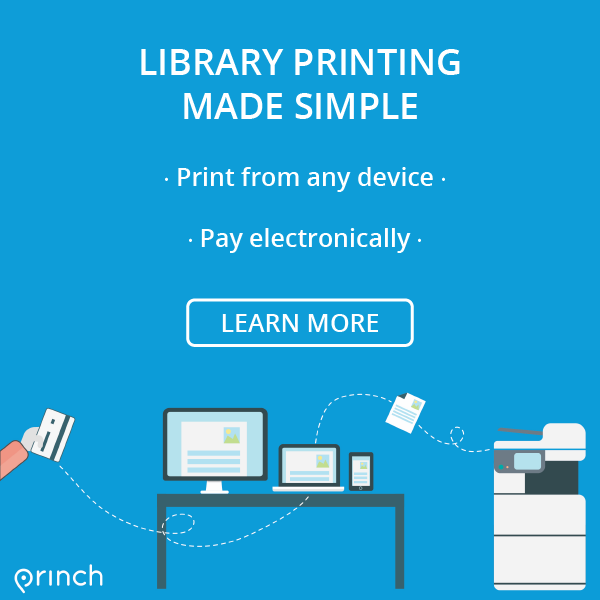In general, the library’s purpose is slowly switching towards being more community focused. Libraries have started observing their user behavior and wishes and adapted their services based on these insights.
To learn more about whether a library should be more community focused or not and the ways it can be more attractive to the users, we’ve interviewed Jan Holmquist, Assistant Library Director at Guldborgsund Libraries in Denmark.

Fablab at Guldborgsund Libraries
1.How are the Danish libraries raising the number of visits to the library, opposite to the general trend in the library sector?
The short answer is: It’s complicated. Libraries are offering a lot of events and programs that are very well used by the public. Several libraries also merged with citizens services which also brings in new user groups. We recently opened a FabLab at Guldborgsund Public Library. This is also bringing in new people and is already a huge success in terms of raising footfall.
2. What is the definition of a library nowadays?
The library is the community’s hub for learning and knowledge creation. Libraries simply make communities smarter. In a world with more and more information librarians and libraries are vital, because they have access to and know how to distribute the right information and knowledge to the citizens in the knowledge economy.
3.Why is the community becoming so important in the library’s activity? Should a public library be more community focused?
The community is still important. I guess it has always been. The more we use technology, the more we need meaningful face-to-face interactions. You find that at the library. You also find other people with knowledge and the same interests as you. This supports communities that learn together thereby strengthening the community even more.
4.What are the most used services at your library? For example, do users like to listen to audiobooks, browse the databases or even participate in workshops and expositions at the library?
They like to do all that and more. There has been a shift towards using more digital services but the death of the physical book is a myth.
The “Open libraries” concept (Self-service libraries) has given the local communities their libraries back in the sense that they are now more accessible. People can lock themselves using their library card and a pin code as a key during self-service hours. People like to meet up, to read, browse, learn and share using both physical and digital sources at the libraries.
5.On what should a library focus when thinking to attract more users to its perimeters?
Co-creation and thinking about the citizens as resources in the community. People’s skills, learning, and know-how are a part of the collective knowledge in the community. Every time you meet someone at the library it is an important meeting. A meeting that makes future authors, musicians, carpenters, comedians, and doctors.
6.What community focused programs are you implementing at your library to make it more attractive for the citizens?
Our new FabLab is a huge success. It brings in more young men (middle aged women are usually our main users) but also grandparents and their grandchildren, start-ups, crafters and much more. A FabLab at the library should focus on sharing knowledge, information literacy etc. If that is the philosophy behind a library FabLab, it is an interesting way to attract new people to the library. That focus makes the FabLab extremely relevant to the core mission of the library.
A library should always focus on the needs of its’ community. What makes a success in my community might not be a success in yours, or maybe you can make a few tweaks that make your project a perfect fit for the library in your community.
A #library should always focus on the needs of its #community. Share on X7. Do you have any advice for libraries wanting to become a community hub?
I usually say: steal good ideas 🙂 and give credit where credit is due. It is part of what I call Global Librarianship. That is a very interesting way to get inspiration from people from other cultures, who face some of the same challenges that you have. This is how we developed 23 mobile things by building upon the original 23 things program invented by Helene Blowers.
Again, it is about finding inspiration and translating it into your own community’s context. Be inspired globally – and act locally in your community.
If you enjoyed the read, let your network know. We’ll be back next week with another interesting article from the library world! Until then, you can find Princh on Facebook and Twitter.
Recent posts
Green Libraries: How Sustainable Design is Shaping the Future of Public Libraries
In this week's Princh Library Blog post, recurring guest writer Sam L. Bowman discusses an ever so important topic: sustainable design and [...]
Librarians Supporting Digital Literacy in the Community
In this week's Princh Library Blog, Nina Grant covers why digital literacy is important, the variety of ways in which librarians are supporting [...]




[…] Jul: Should a public library be more community focused? – Interview with Jan Holmquist (princh blog) experiences from Denmark. Definition of modern library? “The library is the […]